12 Jun 2020 | Covid 19 and freedom of expression, News and features
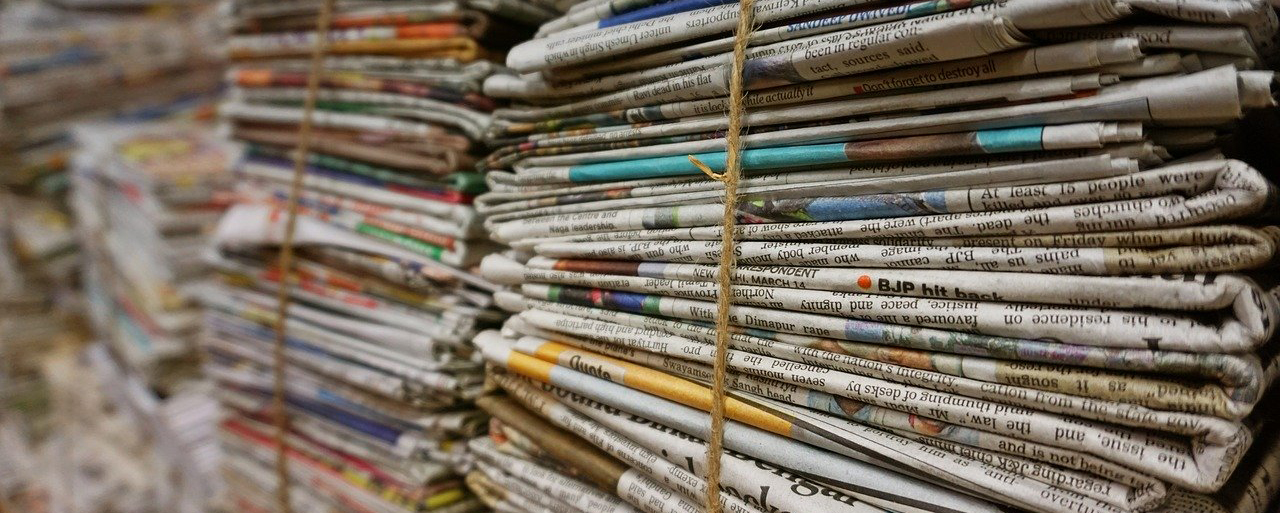
Jordan, the UAE, Oman, Morocco, Yemen and Iran. It is the sort of list that Index might compile for any number of attacks on freedom of expression. In this instance they are all countries that have chosen to ban the printing of newspapers and other media during the current Covid-19 crisis, ostensibly to contain the spread of the virus.
This trend of governments using this pandemic to close down newsprint is one of a series of trends that we have identified in compiling Index’s mapping project . The map, created in conjunction with Justice for Journalists Foundation, tracks media violations during the coronavirus crisis.
On 17 March, the Jordanian Council of Ministers ordered newspapers to stop producing print editions for two weeks in a bid to stop the spread of the coronavirus. Minister of state for media affairs Amjad Adaileh said at a press conference that the decision was “because they help the transmission of the pandemic”. On 21 March, the UAE’s National Media Council announced a temporary ban on printing all newspapers and magazines except for regular subscribers of the publications and large outlets in shopping centres.
The council said the decision was “in line with the precautionary measures taken to contain the spread of the virus. Several people touching the same printed material has the potential to disseminate the virus.”
Over the next week, Morocco, the Sultanate of Oman, Yemen and Iran all followed suit, forcing publishers to produce copies online. In April, the Indian state of Maharashtra did things differently; it didn’t ban print publications but banned their delivery to people’s doors.
In early April, a number of Tunisian publishers suspended printing a number of daily and weekly publications.
Yet there is mounting evidence that there is little or no risk of catching the virus from newspapers, which has led Index to suspect that Covid-19 is being used as an excuse.
The World Health Organisation is reported to have said that the risk of contracting the virus from newsprint is “infinitely small”.
Professor George Lomonossoff, a virologist at the John Innes Centre said in a TV interview: “Newspapers are pretty sterile because of the way they are printed and the process they’ve been through. Traditionally, people have eaten fish and chips out of them for that very reason. So all of the ink and the print makes them actually quite sterile. The chances of that are infinitesimal.”
Former director general of the Indian Council of Medical Research N K Ganguly told the Deccan Herald: “It is more of a perception than reality that COVID-19 virus spreads through newspapers.
The risk of catching the virus from newsprint seems remote but some say the fear of it spreading that way is causing people not to buy print newspapers.
Vincent Peyrègne, CEO of the World Association of News Publishers, (WAN-IFRA) said:
“Today, modern newspaper production is fully automated from end to end. There is hardly human intervention until the last mile distribution point. The ink and solvent used in newspaper printing act as a disinfectant to a large extent and there is no evidence to show that newspapers are carriers of the virus. The rumours that the virus can spread through newspapers is also having a disastrous effect, and newspaper as a source of transmission of the virus is very remote.”
It is perhaps telling that the countries which appear high on various rankings of press freedom have not joined in with banning newsprint.
Peyrègne said these countries “banned print newspapers with the fallacious, or misleading argument that they needed to protect the health of citizens”.
“Any banning of media or placing of restrictions on journalists or media organisations is not only an attack on the freedom to inform and to be informed, but it also carries serious consequences in terms of responsibility for contributing to one of the most serious humanitarian and economic crises we have experienced in the last one hundred years. Nevertheless, many authoritarian countries feel that the crisis is the perfect excuse to crack down on free speech, silence their critics and accelerate repressive measures,” said Peyrègne.
The ban on print editions of newspapers and magazines has contributed to a devastating effect on circulations.
Peyrègne said: “The month of April hit the circulation of the daily press hard, due to confinement, the closure of sales outlets and the shutdown of transport. Generally speaking, readership and subscription surged dramatically during the lockdown. Some segments were obviously more affected than others.”
In the UK, the auditing body ABC has told publishers they no longer have to reveal their print circulations, a move which media trade journal Press Gazette says may mean we “never get the full picture of the impact of coronavirus on newspaper sales”. It says that News UK is the only major publisher to say it will not provide the figures so far.
The crisis has also seen a dramatic acceleration in the move of local newspapers away from print. Many local newspapers rely on advertising from their communities and most of these businesses have been forced to close during the crisis, sucking revenues from the publishers.
News Corp Australia announced at the end of May that 76 of its local and regional newspapers would become digital only while 36 others would cease publication permanently.
In the UK, JPIMedia said it was temporarily stopping the print publication of a dozen of its titles, including the MK Citizen in Milton Keynes and the News Guardian in North Tyneside.
In Egypt, Sawt Al-Azhar, Veto, Al-Youm Al-Gadid and Iskan Misr have all temporarily stopped producing print editions.
It is good to see that some countries, including Morocco, Tunisia and Jordan have reversed their bans but such incidents represent just a small part of wider crackdowns on media freedom that we are witnessing at this time of crisis and which we are reporting on our interactive map.
Newspapers play a vital role in informing communities, particularly at times of crisis, and the combination of misguided bans and the poor financial viability of some titles will be a loss that will be keenly felt.
Read more about Index’s mapping media freedom during Covid-19 project.
10 Jun 2020 | News and features, Statements
[vc_row][vc_column][vc_column_text]
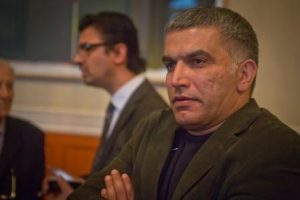
Nabeel Rajab at the 2012 Freedom of Expression Awards
Index welcomes the news that Bahraini human rights activist Nabeel Rajab has been freed from prison. Rajab, the president of the Bahrain Center for Human Rights and an Index on Censorship Freedom of Expression Award winner in 2012, had been held since 2016 and convicted of offences including “spreading fake news”.
Rajab had tweeted about torture in Bahrain’s jails and had criticised the war in Yemen. As Index wrote during one of his many appeals: “Those are not crimes. Opinions are not crimes.”
Rajab has suffered relentless harassment since his involvement as a peaceful activist during the Bahrain uprising in 2011, during which he was in and out of prison on numerous occasions. He was then in prison on a continual basis from June 2016, and was sentenced in all to seven years in prison across two separate trials. In February 2018 he was sentenced to five years in prison for tweeting, which was added to a two-year conviction in June 2017 for “broadcasting fake news” relating to television interviews he gave in 2015.
On Tuesday, Rajab’s lawyer said he would serve the remainder of his sentence in a non-custodial setting.
“This is amazing news. Index on Censorship has been pushing for this for a long time,” said Rachael Jolley, editor-in-chief at Index.
But while we welcome news of his release and reunion with his family, we still demand that all charges are dropped against Rajab, as well as all others who are imprisoned in Bahrain simply for their views and advocacy.
This year, one of the co-winners of the Index on Censorship Freedom of Expression Awards Campaigning category was Sayed Ahmed Alwadaei, a Bahraini activist currently living in exile in the UK who is the director of advocacy at the Bahrain Institute for Rights and Democracy. As Alwadaei said when accepting the award in April:
“The price for expressing yourself in Bahrain remains very high. I myself ended up in prison for speaking to the press during the Arab Spring.”[/vc_column_text][/vc_column][/vc_row][vc_row][vc_column width=”3/4”][/vc_column][/vc_row]
5 Feb 2020 | Art and the Law, Art and the Law Case Studies, Artistic Freedom Case Studies, Campaigns, Uncategorized, United Kingdom, United States
In September 2019, London-based photographer Yumna Al-Arashi announced that one of her photographs, showing women in a hammam, had been taken down by Instagram because, according to the platform, it fell foul of the community’s standards on adult nudity.
Name of Artwork: Shedding Skin
Artist: Yumna Al-Arashi
Date: September 2019
Brief description of the artwork
According to the artist, the work is a play on Orientalism, and specifically the way Arab women’s bodies are represented by white men. Made by a woman and taking a woman’s point of view, the work counters all the images of bodies that are supposed to represent women like the artist herself, but have nothing to do with her lived experience. The hammam, which Orientalism exoticises and eroticizes, is, in fact, a space where women can come together without judging each others’ bodies. It is the opposite of an eroticized environment. There is something healing and unifying that Al-Arashi sees in the all-women hammam, which she wants to convey to the audience through this staged image.
What triggered the takedown?
Shedding Skin fell foul Instagram’s Community Standards on Adult Nudity and Sexual Activity, which restrict photographic representations of nudity “because some people in [the Instagram] community may be sensitive to this type of content.”
The Instagram community comprises over one billion people globally, raising the question of whether it is at all possible to cater to the sensitivities of such a broad range of ‘community’ members.
Nudity, by the company’s definition, includes “uncovered female nipples” though there are exceptions for nipples represented in the “context of breastfeeding, birth-giving and after-birth moments, health-related situations (for example, post-mastectomy, breast cancer awareness or gender confirmation surgery) or an act of protest”. Male nipples are permitted while transgender nipples are banned or allowed depending on how the platform’s algorithms interpret the gender of the model. Painting and sculptural representations of nudes are exempt from restrictions, but photography is not. Algorithms occasionally mistake a painting or sculpture for a photograph and remove it, as happened with the Venus of Willendorf, or as it regularly happens with Betty Tomkins’ work, or with Courbet’s painting Origin of the World, which led to an eight year court case.
What action did Al-Arashi take?
Al-Arashi censored her own image, by concealing all visible nipples (see the figure second from right) and reposted it with a direct appeal to Instagram.
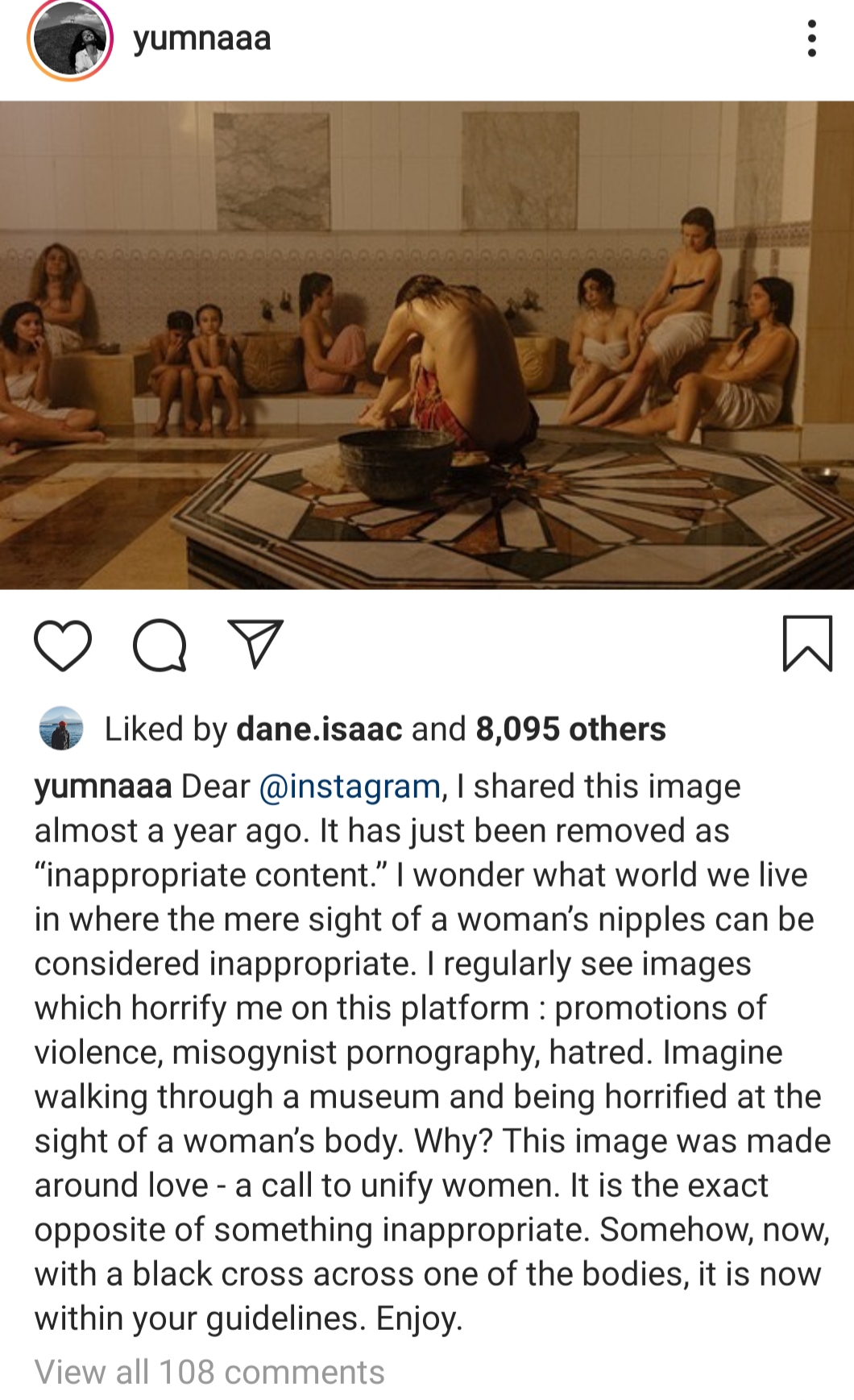
Al-Arashi’s second Instagram post
Next day, after it received over 6,000 likes, the image was removed and Al-Arashi, now considered a repeat offender, was blocked (according to Instagram parent Facebook, temporarily) from using Instagram’s branded content tools. It seems that the algorithms analyzing the image still saw too much nudity in it. Al-Arashi appealed the decision, but got no response: the situation many artists find themselves in.
Al-Arashi reposted the censored image in order to stay within Instagram’s terms of service “but I felt necessary to include the open letter [to Instagram] when I did. The censored image remains on view.
Al-Arashi contacted Index on Censorship who put her in touch with Svetlana Mintcheva, programme director at the US based National Coalition Against Censorship, currently running a campaign called #wethenipple.
Mintcheva brought the original image to the attention of the Facebook policy team as an example of valuable artistic expression that the company’s current guidelines do not allow on its platforms.
It was one among the works brought up in the discussion with Facebook and Instagram resulting from the #wethenipple campaign. As part of ongoing discussions, Facebook and Instagram held a meeting between artists and artistic freedom activists and Instagram tech and policy representatives. The goal was to discuss company content standards and enforcement with artists working with the human body and hear their concerns and to look for solutions. The meeting was held at Facebook’s HQ in NYC where, ironically, another work by Al-Arashi was on show for a period of time.
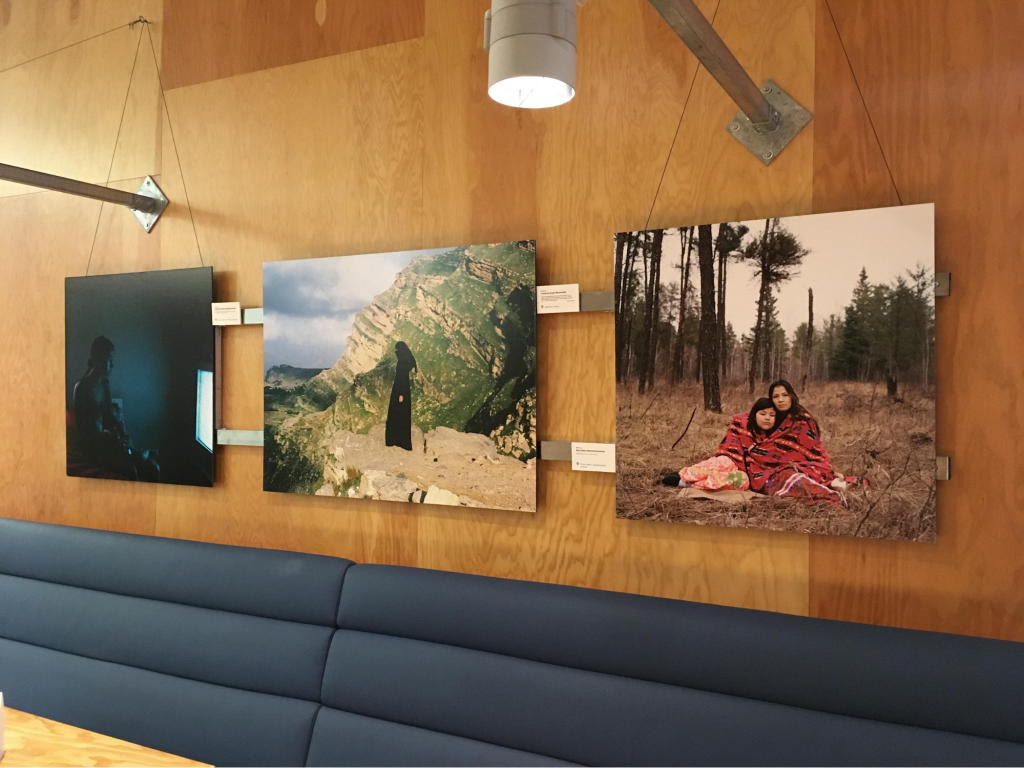
Yumna Al-Arashi’s work from Northern Yemen (centre) displayed at Facebook HQ in NYC
Facebook’s concerns about photographic nudity were:
- sensitivities of some viewers
- the difficulty of age verification
- confirming the subject of the photographs has given consent.
In addition, a question was raised around the perennial challenge of drawing a clear line between art and pornography as well as between art and photography that is not artistic. Indeed, a member of the Facebook policy team questioned how Al-Arashi’s work can be distinguished — as art — from a mere photograph of a hammam.
Possible solutions relating to Al-Arashi’s case
Creating artist verified accounts
This is problematic as it creates a hierarchy and raises questions about who is an artist and who can be verified as such. Nevertheless, it could allow a lot more content to be posted and go some way towards destigmatising the nude body.
Greater user control
If a user does not want to see a nude, there should be an option of filtering out content along the same lines as Facebook and Instagram offer regarding violent content. Once the filter is in place, you would need to click to remove the blocking filter to see the image.
Guidance on appeals
As content is regularly taken down by algorithms even though it conforms to guidelines, guidance will give individual artists instructions on how to appeal take-downs.
#MissingVoices
In line with Article 19’s campaign calling on “social media platforms to provide a human-rights centred process that guarantees notice, the right to appeal and transparent reporting when content is blocked and accounts removed”. This is very similar to the clarification of guidelines above.
Facebook’s response
The policy team said they were considering changes to policy, especially where clarification of guidelines and user controls are concerned.
Personal reflection by Yumna Al-Arashi
“Shedding Skin is an important piece of work for me, made in direct response to [President Donald] Trump’s Muslim ban. It had been up since 2018 and I felt that it had got over the takedown hurdle, and was appreciated for its artistic value. I feel that this is a strike against me, and that if I strike back I risk having my account deleted which would really damage my career.”
“When Instagram takes your privileges away and censors your work it is potentially so damaging. The message is that your account is pornographic or sexual in nature and you are barred from participating in our economy. I can still post – but it makes me not want to. It feels like I am on some kind of list, and if I appeal another takedown I might lose everything. Even though I don’t currently use Instagram’s branded content tools, it doesn’t mean to say that I won’t use them in the future.”
Personal reflection by Svetlana Mintcheva
“Facebook and Instagram are not going to make changes because they believe in artist rights or any other rights. The work, as originally conceived, still violates community standards, as does any other work containing photographic nudity, no matter how artistically valuable and important it may be. And unfortunately, Yumna’s hope that her work had remained up so long due to its artistic merit is unfounded; the nudity had simply not been noticed.”
“As private companies, social media platforms don’t have to conform to First Amendment protections in the United States and can decide to censor specific content. Free speech may be celebrated by Mark Zuckerberg in his public speeches, but free speech is only valuable to Facebook and Instagram as long as it works in harmony with their business model. And their business model is based on engagement: Facebook and Instagram want to satisfy the needs and desires of the largest number of people so to engage more users more actively and collect the largest amount of data.”
“Some critics say Facebook is prudish. It is not prudery that guides the company, it is their business model. Which is also true in general for any actor competing in a capitalist economy. The problem is Facebook and Instagram have a de-facto monopoly on the sharing of visual content widely — other artist friendly sites exist, but the audiences they reach are very small by comparison. As a result Instagram has the power to determine what art can circulate to global audiences. If a similarly broad platform for sharing images existed, public pressure would have more leverage in demanding art-friendly content guidelines. Perhaps it is time to think of an alternative platform, a non-profit platform that is based on a different business model and built in view of the public interest. This could be underpinned by a set of social media best practices endorsed by artists and museums. However, I wouldn’t be too optimistic; creating unity among artists on the issues is a challenge in itself. And questions about consent and age verification are hard to resolve and require resources — a public platform may be similarly reluctant to arbitrate between pornography and art.” [/vc_column_text][/vc_column][/vc_row]
13 Dec 2019 | Magazine, Magazine Contents, Volume 48.04 Winter 2019
[vc_row][vc_column][vc_custom_heading text=”With contributions from Jeffrey Wasserstrom, Miriam Grace Go, Tammy Lai-ming Ho, Karoline Kan, Rob Sears, Jonathan Tel and Caroline Lees”][/vc_column][/vc_row][vc_row][vc_column][vc_column_text]
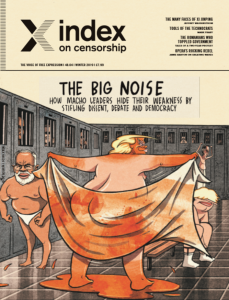 The Winter 2019 issue of Index on Censorship magazine looks at the current pack of macho leaders and how their egos are destroying our freedoms. In this issue Rappler news editor Miriam Grace Go writes about how the president of the Philippines, Rodrigo Duterte, tries to position himself as the man by being as foul-mouthed as possible. Indian journalist Somak Goshal reports on how Narenda Modi presents an image of being both the guy next door, as well as a tough guy – and he’s got a large following to ensure his message gets across, come what may. The historian Jeffrey Wasserstrom considers exactly who the real Chinese leader Xi Jinping is – a man of poetry or military might? And Stefano Pozzebon talks to journalists in Brazil who are right in the firing line of Jair Bolsonaro’s vicious attacks on the media. Meanwhile Mark Frary talks about the tools that autocrats are using to crush dissent and Caroline Lees looks at the smears that are becoming commonplace as a tactic to silence journalists. Plus a very special spoof on all of this from bestselling comedic writer Rob Sears.
The Winter 2019 issue of Index on Censorship magazine looks at the current pack of macho leaders and how their egos are destroying our freedoms. In this issue Rappler news editor Miriam Grace Go writes about how the president of the Philippines, Rodrigo Duterte, tries to position himself as the man by being as foul-mouthed as possible. Indian journalist Somak Goshal reports on how Narenda Modi presents an image of being both the guy next door, as well as a tough guy – and he’s got a large following to ensure his message gets across, come what may. The historian Jeffrey Wasserstrom considers exactly who the real Chinese leader Xi Jinping is – a man of poetry or military might? And Stefano Pozzebon talks to journalists in Brazil who are right in the firing line of Jair Bolsonaro’s vicious attacks on the media. Meanwhile Mark Frary talks about the tools that autocrats are using to crush dissent and Caroline Lees looks at the smears that are becoming commonplace as a tactic to silence journalists. Plus a very special spoof on all of this from bestselling comedic writer Rob Sears.
In our In Focus section, we interview Jamie Barton, who headlined this year’s Last Night at the Proms, an article that fits nicely with another piece on a new orchestra in Yemen from Laura Silvia Battaglia.
In our culture section we publish a poem from Hong Kong writer Tammy Lai-ming Ho, which addresses the current protests engulfing the city, plus two short stories written exclusively for the magazine by Kaya Genç and Jonathan Tel. There’s also a graphic novel straight out of Mexico.
[/vc_column_text][/vc_column][/vc_row][vc_row][vc_column][vc_custom_heading text=”Special Report”][/vc_column][/vc_row][vc_row][vc_column][vc_column_text]Will the real Xi Jinping please stand up by Jeffrey Wasserstrom: China’s most powerful leader since Mao wears many hats – some of them draconian
Challenging Orbán’s echo chamber by Viktória Serdült: Against the odds a new mayor from an opposition party has come to power in Budapest. We report on his promises to push back against Orbán
Taking on the lion by Stefano Pozzebon: With an aggressive former army captain as president, Brazilian journalists are having to employ bodyguards to keep safe. But they’re fighting back
Seven tips for crushing free speech in the 21st century by Rob Sears: Hey big guy, we know you’re the boss man, but here are some tips to really rule the roost
“Media must come together” by Rachael Jolley and Jan Fox: Interview with the New York Times’ lawyer on why the media needs to rally free speech. Plus Trump vs. former presidents, the ultimate machometer
Tools of the real technos by Mark Frary: The current autocrats have technology bent to their every whim. We’re vulnerable and exposed
Modi and his angry men by Somak Ghoshal: India’s men are responding with violence to Modi’s increasingly nationalist war cry
Global leaders smear their critics by Caroline Lees: Dissenters beware – these made-up charges are being used across borders to distract and destroy
Sexism is president’s power tool by Miriam Grace Go: Duterte is using violent language and threats against journalists, Rappler’s news editor explains
Stripsearch by Martin Rowson: Putin, Trump, Bolsonaro – macho or… nacho?
Sounds against silence by Kaya Genç: Far from a bad rap here as Turkey’s leading musicians use music to criticise the government
Un-mentionables by Orna Herr: The truths these world leaders really can’t handle
Salvini exploits “lack of trust” in Italian media by Alessio Perrone: The reputation of Italian media is poor, which plays straight into the hands of the far-right politician
Macho, macho man by Neema Komba: A toxic form of masculinity has infected politics in Tanzania. Democracy is on the line
Putin’s pushbacks by Andrey Arkhangelskiy: Russians signed up for prosperity not oppression. Is Putin failing to deliver his side of the deal?[/vc_column_text][/vc_column][/vc_row][vc_row disable_element=”yes”][vc_column][vc_custom_heading text=”Global View”][vc_column_text]Trying to shut down women by Jodie Ginsberg: Women are being forced out of politics as a result of abuse. We need to rally behind them, for all our sakes[/vc_column_text][/vc_column][/vc_row][vc_row][vc_column][vc_custom_heading text=”In Focus”][vc_column_text]Dirty industry, dirty tactics by Stephen Woodman: Miners in Brazil, Mexico and Peru are going to extremes to stop those who are trying to protest
Music to Yemen’s ears by Laura Silvia Battaglia: Could a new orchestra in Yemen signal the end of oppressive Houthi rule? These women hope so
Play on by Jemimah Steinfeld: The darling of the opera scene, Jamie Barton, and the woman behind a hit refugee orchestra, discuss taboo breaking on stage
The final chapter by Karoline Kan: The closing of Beijing’s iconic Bookworm has been met with cries of sadness around the world. Why?
Working it out by Steven Borowiec: An exclusive interview about workplace bullying with the Korean Air steward who was forced to kneel and apologise for not serving nuts correctly
Protest works by Rachael Jolley and Jemimah Steinfeld: Two activists on how their protest movements led to real political change in Hungary and Romania
It’s a little bit silent, this feeling inside by Silvia Nortes: Spain’s historic condemnation of suicide is contributing to a damaging culture of silence today[/vc_column_text][/vc_column][/vc_row][vc_row][vc_column][vc_custom_heading text=”Culture”][vc_column_text]Hong Kong writes by Tammy Lai-ming Ho: A Hong Kong poet talks to Index from the frontline of the protests about how her writing keeps her and others going. Also one of her poems published here
Writing to the challenge by Kaya Genç: Orna Herr speaks to the Turkish author about his new short story, written exclusively for the magazine, in which Turkish people get obsessed with raccoons
Playing the joker by Jonathan Tel: The award-winning writer tells Rachael Jolley about the power of subversive jokes. Plus an exclusive short story set in a Syrian prison
Going graphic by Andalusia Knoll Soloff and Marco Parra: Being a journalist in Mexico is often a deadly pursuit. But sometimes the horrors of this reality are only shown in cartoon for, as the journalist and illustrator show[/vc_column_text][/vc_column][/vc_row][vc_row][vc_column][vc_custom_heading text=”Index around the world”][vc_column_text]Governments seek to control reports by Orna Herr: Journalists are facing threats from all angles, including new terrorist legislation[/vc_column_text][/vc_column][/vc_row][vc_row][vc_column][vc_custom_heading text=”Endnote”][vc_column_text]Culture vultures by Jemimah Steinfeld: The extent of art censorship in democracies is far greaten than initially meets the eye, Index reveals[/vc_column_text][/vc_column][/vc_row][vc_row][vc_column width=”1/3″][vc_custom_heading text=”Subscribe”][vc_column_text]In print, online, in your mailbox, on your iPad.
Subscription options from £18 or just £1.49 in the App Store for a digital issue.
Every subscriber helps support Index on Censorship’s projects around the world.
 SUBSCRIBE NOW[/vc_column_text][/vc_column][vc_column width=”1/3″][vc_custom_heading text=”Read”][vc_column_text]The playwright Arthur Miller wrote an essay for Index in 1978 entitled The Sin of Power. We reproduce it for the first time on our website and theatre director Nicholas Hytner responds to it in the magazine
SUBSCRIBE NOW[/vc_column_text][/vc_column][vc_column width=”1/3″][vc_custom_heading text=”Read”][vc_column_text]The playwright Arthur Miller wrote an essay for Index in 1978 entitled The Sin of Power. We reproduce it for the first time on our website and theatre director Nicholas Hytner responds to it in the magazine
READ HERE[/vc_column_text][/vc_column][vc_column width=”1/3″][vc_custom_heading text=”Listen”][vc_column_text]In the Index on Censorship autumn 2019 podcast, we focus on how travel restrictions at borders are limiting the flow of free thought and ideas. Lewis Jennings and Sally Gimson talk to trans woman and activist Peppermint; San Diego photojournalist Ariana Drehsler and Index’s South Korean correspondent Steven Borowiec
LISTEN HERE[/vc_column_text][/vc_column][/vc_row]





 The Winter 2019 issue of Index on Censorship magazine looks at the current pack of macho leaders and how their egos are destroying our freedoms. In this issue Rappler news editor Miriam Grace Go
The Winter 2019 issue of Index on Censorship magazine looks at the current pack of macho leaders and how their egos are destroying our freedoms. In this issue Rappler news editor Miriam Grace Go